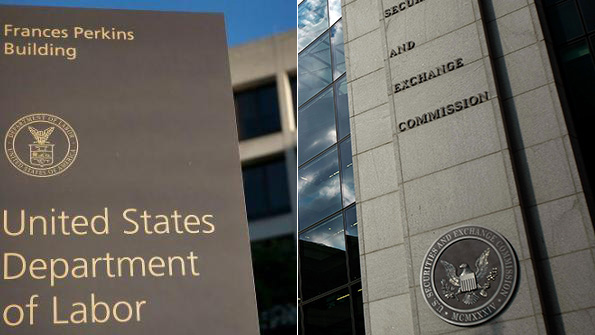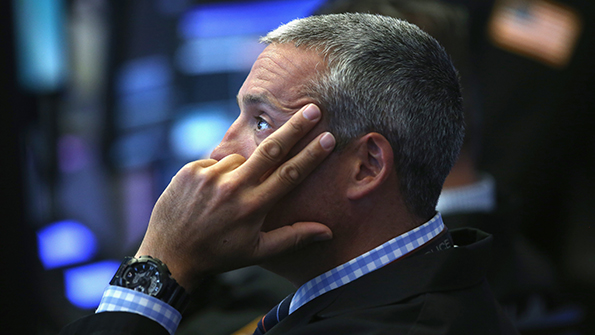
New economic models forecast that the biggest threat from global warming, beyond endangering human life, could be to global financial assets, according to The Guardian. Researchers from the London School of Economics and others estimate that climate change could cut the value of the world’s assets by at least $2.5 trillion, or even as much as $24 trillion, or 17 percent of the world’s assets, in the worst-case scenario—enough to wreck the global economy. The study, published in the peer-reviewed journal Nature Climate Change, calculates the losses of physical destruction of property from extreme weather events and a reduction of earnings for those affected by high temperatures, droughts and other environmental impacts. “Our work suggests to long-term investors that we would be better off in a low-carbon world,” said professor Simon Dietz of the London School of Economics. “Pension funds should be getting on top of this issue, and many of them are.”
DOL, SEC Collaborated “Cordially” and “Extensively,” Says Rhoades

Ron Rhoades, assistant professor of finance at Western Kentucky University and a champion of the fiduciary rule for financial advisors, reviewed thousands of internal government documents and concluded that the Department of Labor and the Securities and Exchange Commission had in fact collaborated “intensively” and “cordially” while the Labor department was crafting the fiduciary rule for advisors to retirement accounts, expected to be revealed this week. His conclusion contradicts a February 2016 Senate Committee’s majority staff report that accused Labor department staffers of being contentious with and dismissive of the SEC, and concluded that the department rushed through the proposal without addressing dozens of the commission’s concerns. “A close review of over 2,500 pages of emails, attendee meeting lists and draft documents between the SEC and DOL reveal extensive dialogue, both in terms of breadth and depth, over several years,” Rhoades writes in a LinkedIn post.
Not All Liquid Alts Use Derivatives

A coalition of asset managers, including AQR Capital Management, First Quadrant and Affiliated Managers Group, released a white paper touting the benefits of alternative mutual funds. The Coalition for Responsible Portfolio Management paper, written by Craig Lewis, a professor of management in finance at Vanderbilt University, says that alternative mutual funds do not subject investors to undue risk and are necessary to the construction of a well-diversified portfolio. The report is in response to the Securities and Exchange Commission’s proposal to limit the use of derivatives by mutual funds. “The evidence suggests that many liquid alternative mutual funds do not use derivatives to amplify risk in ways that are potentially dangerous to retail investors. In fact, all of the alternative fund asset classes examined have risk levels that are significantly less than standard equity benchmarks like the S&P 500,” said Lewis. For example, from January 2001 to December 2015, the average liquid alternative fund had a mean monthly return of 0.43 percent and a standard deviation (a measure of volatility) of 2.02 percent. That compares to the S&P 500, with a mean monthly return of 0.5 percent and standard deviation of 4.33 percent over that same time period.
Investor Sentiment Continues to Drop

According to a John Hancock survey, investor sentiment declined in the first quarter of 2016 for the third consecutive quarter, reaching its lowest point since the third quarter of 2013. Overall, 75 percent of investors said they are optimistic about the growth of the U.S. economy, but half think 2016 won’t be a positive year for the average investor. Health care and political gridlock were of chief concerns. Frances Donald, an economist with John Hancock, attributed the downturn to the “volatile track record of the stock market since the beginning of the year as well as the crash in oil prices in mid-February.”




